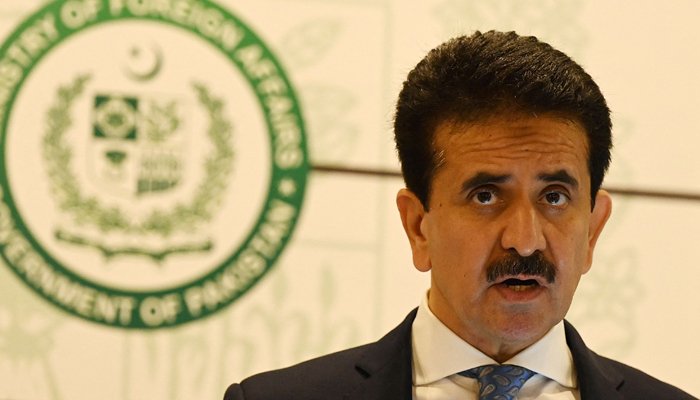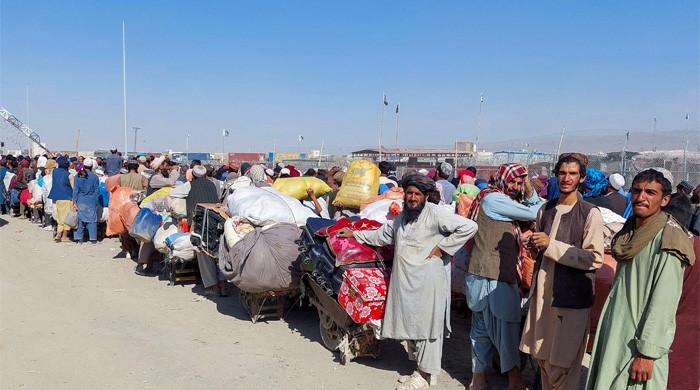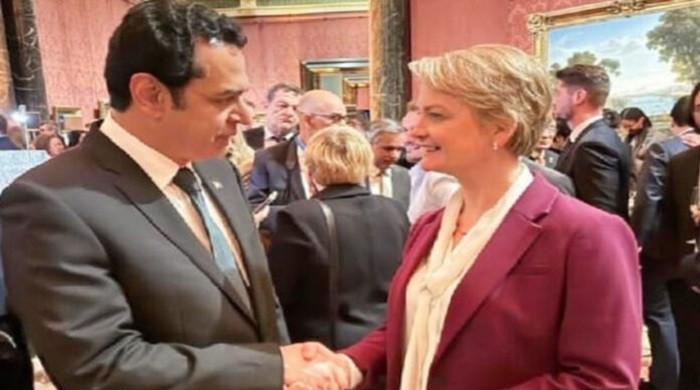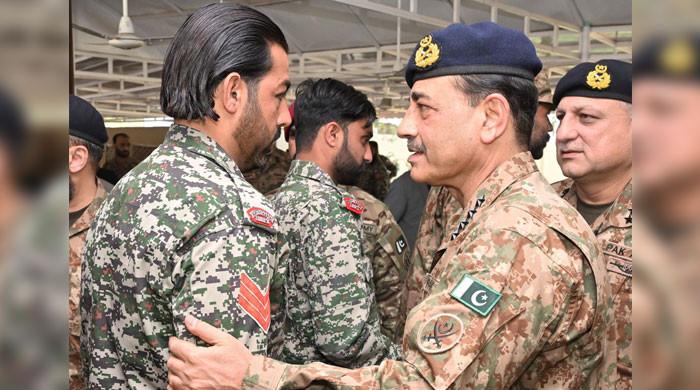Pakistan says it considers US a friend, wants broad-based relations
"We both believe that there’s no military solution to the conflict in Afghanistan," says Foreign Office
August 13, 2021

- Pakistan, US have a history of close cooperative relations, says FO.
- "We both believe that there’s no military solution to the conflict in Afghanistan," says Zahid Hafeez Chaudhri.
- Pakistan says it should not "be looked at through the prism of another country nor should our relations be viewed narrowly".
ISLAMABAD: Pakistan clarified Friday that it considers the US a friend and "wants broad-based relations to achieve our shared objective of peace and prosperity in the region and beyond".
This was said by the Foreign Office Spokesperson Zahid Hafeez Chaudhri during his weekly press briefing. He answered questions on Pakistan's response to the escalating situation in Afghanistan and Pakistan's relations with the US.
"Pakistan and the United States have a history of close cooperative relations. This cooperative relationship has served the interests of both the countries," he said.
In the context of the ongoing Afghan Peace Process, Pakistan and the US have similar views and interests on several key issues, added the spokesperson.
"We both believe that there’s no military solution to the conflict in Afghanistan and we both want to see peace in Afghanistan," he noted.
Chaudhri said Pakistan played an instrumental role in bringing about the peace agreement between the Taliban and the US in Doha last year.
He continued that Pakistan and the United States support an inclusive, broad-based and comprehensive political settlement in Afghanistan through a process that is owned and led by the Afghans themselves.
Chaudhri said neither should Pakistan "be looked at through the prism of another country nor should our relations be viewed narrowly".
Pakistan will take all such decisions and pursue policies that are in our national interest and contribute to peace and prosperity in the region and beyond, said the FO spokesman.
Troika Plus meeting discusses expediting intra-Afghan dialogue
A meeting of the Extended Troika including special envoys from Pakistan, the US, China and Russia was held in Doha yesterday (August 11).
The members of the Extended Troika discussed the deteriorating security situation in Afghanistan and explored ways of expediting the intra-Afghan peace talks for achieving an inclusive political settlement and bringing an end to the four decades-long conflicts in Afghanistan, he said.
Delegations of the Islamic Republic of Afghanistan led by Dr Abdullah Abdullah and the Taliban, led by Mullah Bradar, also interacted with the Extended Troika. The Extended Troika countries discussed the following main points:
• There was a need for urgent measures to reduce violence leading to a ceasefire.
• There was no military solution to the Afghan conflict.
• The Afghan sides should put forward their peace plans on a priority basis so that progress is made towards a political roadmap.
• There is a need for all sides to respect human rights and not indulge in human rights violations.
Pakistan attaches importance to the role of the Extended Troika for bringing lasting peace and stability to Afghanistan and will continue to engage in this platform to undertake collective efforts to expedite the peace process.
Pakistan only seen as useful by US to clean up 'mess' in Afghanistan: PM Imran Khan
The statement by the Foreign Office comes a day after the prime minister issued a hard-hitting statement, saying that Washington sees Pakistan only useful in cleaning up the "mess" in Afghanistan.
Washington has been pressing Pakistan to use what they believe is Islamabad's influence over the Taliban to broker an elusive peace deal as negotiations between the group and the Afghan government have yet to see any fruitful gains, and violence in Afghanistan has escalated sharply.
"Pakistan is considered only to be useful in the context of somehow settling this mess which has been left behind after 20 years of trying to find a military solution when there was not one," he said Thursday.
The prime minister had also turned down speculation of him waiting for US President Joe Biden's phone call — who has not had any contact with the premier since he took charge in January this year.
"I keep hearing that President Biden hasn't called me. It's his business. It's not like I am waiting for any phone call," he had said while responding to a question during a session with foreign journalists in Islamabad.
The premier's remarks follow National Security Adviser (NSA) Moeed Yusuf saying that Washington's lack of initiative to interact with Islamabad was beyond his understanding.
“The president of the United States hasn’t spoken to the prime minister of such an important country who the US itself says is make-or-break in some cases, in some ways, in Afghanistan — we struggle to understand the signal, right?” Yusuf had told the Financial Times in an interview.











